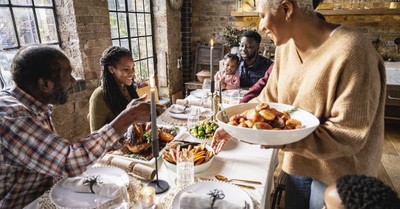Unprecedented Protests in Hong Kong and Moscow: How to Unleash the Power of True Community

Hong Kong International Airport has canceled all remaining departing flights for the second day after thousands of pro-democracy protesters blocked the terminals. “Protesting in the airport is the best way to tell the world what’s happening in Hong Kong,” according to a sixteen-year-old who handed out flyers to travelers alleging police brutality.
Demonstrators say they are protesting the erosion of the “one country, two systems” arrangement that was enacted when Hong Kong reverted to Chinese control in 1997. Uprisings started ten weeks ago over a bill that would have allowed China to extradite Hong Kong citizens to face trial in Communist courts. It has since broadened into demands for more democratic reforms. Protesters have blocked trains and staged airport strikes, rallies, and marches.
Meanwhile, nearly fifty thousand people flooded Moscow over the weekend to demand an end to political controls under President Vladimir Putin and to stand up against police violence. This is the largest protest movement in Moscow in years and comes as Mr. Putin’s support has fallen to multiyear lows.
Is our culture at war with community?
There is enormous power in community.
The return of Col. Roy Knight Jr.’s remains to Dallas on an airplane flown by his son engendered an airport-wide show of support that even made the New York Times. Mass protests led to the fall of the Berlin Wall and sweeping democratic reforms in Eastern Europe. Whether for bad or for good, the force generated by people working together to advance a common agenda is undeniable.
Why, then, is our culture undermining community at a time when we need it most?
As American society has turned from biblical sexuality and marriage, we have seen a rapid fragmentation of the family. The number of unmarried parents has increased fourfold since 1968; the number of births to unmarried women has increased over 50 percent.
As a result, 40 percent of children born in America today are to women who are either solo mothers or living with a nonmarital partner. This while the children of unmarried parents are much more likely to be impoverished and otherwise disadvantaged.
With the advent of postmodern relativism and its denial of biblical authority, we have seen a rapid decline in church membership as well. According to Gallup, the percentage of Americans who say they belong to a church or other religious institution has fallen from more than 70 percent to 50 percent. This is the lowest since Gallup began such polling in 1937.
It’s not just families and churches that are fragmenting in our postmodern, post-Christian society. Rotary Clubs, Masons, Elks, and Shriners are all declining in membership. Organizations that require us to sacrifice our time and resources on a regular, disciplined basis are facing enormous headwinds these days.
Is connectedness the new community?
One more factor: as institutions are declining, digital interactions are escalating.
Glenn Sparks, a Purdue University professor, notes that younger people “are managing their relationships and feeling of being close to people through electronic technology.” As a result, “They probably don’t feel as much of a need to go and physically congregate in a place.” In addition, groups that offer speakers and informational events are less attractive in a day when the world is available on our mobile phones.
As my colleague Chris Elkins observes, our culture is exchanging community for connectedness, but the two are not the same. Your Twitter feed can’t visit you in a hospital. A cell phone can’t hug you when you grieve.
This is one reason the gospel is such good news. Wherever people make Jesus their Lord, they join a global family of faith in which we are all the children of one Father. Now Jesus calls us to love each other “just as I have loved you” (John 13:34).
How, then, does he love us?
Three ways to model empowering community
Consider three practical ways we can model the kind of community our culture needs so desperately.
One: Love inclusively.
Jesus called tax collectors and lepers, prostitutes and businessmen. He loved Jews and Gentiles. He touched diseased bodies and cleansed demon-possessed souls. Now he wants us to love each other and the world with the same inclusive compassion, building a culture in which “there is neither Jew nor Greek, there is neither slave nor free, there is no male and female, for you are all one in Christ Jesus” (Galatians 3:28).
Two: Love sacrificially.
It is seldom easy to do the right thing. But it is always right to do the right thing.
Jesus’ best friend later said of his Lord, “By this we know love, that he laid down his life for us, and we ought to lay down our lives for the brothers” (1 John 3:16). If we stand for biblical sexuality and marriage, the culture will attack us. If we build bridges across racial divides, those who hate others will hate us. It is seldom easy to do the right thing. But it is always right to do the right thing.
Three: Love practically.
Jesus washed dirty feet and fed hungry bodies. His love was present tense and personal. Now we are his hands and feet extending his earthly ministry through ours. Who needs your practical compassion today? What bridges across ethnicities can you build? What common projects can you advance? How can you use your influence for God’s glory and our good?
Inclusive, sacrificial, practical love—these are the grace gifts your Savior has given you. You cannot pay them back, but you can pay them forward.
Will you?
For more from the Denison Forum, please visit www.denisonforum.org.
The Daily Article Podcast is Here!
Publication Date: August 13, 2019
Photo Courtesy: Getty Images/Chris McGrath/Staff



















